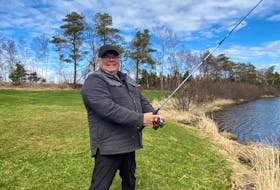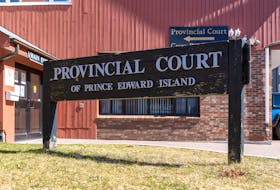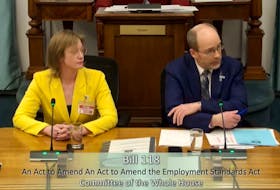EASTERN KINGS, P.E.I. — A property owner's development permit has been quashed by the Island Regulatory and Appeals Commission (IRAC), which was appealed by the entity looking to expand its wind farm nearby.
The reason, according to IRAC's decision and order on Oct. 6, is because the Rural Municipality of Eastern Kings didn't properly administer the permit.
Sonya Martin, chief administrative officer (CAO) of Eastern Kings, said that she and the municipality's council were hoping for this outcome following months of going through the appeal process.
"We're very well aware that the permit wasn't valid," she said.
The appellant, P.E.I. Energy Corporation (PEIEC), was approved this September under the province's environmental protection act to expand its existing wind farm in the area by seven turbines, subject to conditions. It had applied for a special development permit to Eastern Kings in June 2019.
About two months later, resident Jeffrey Klein applied for a permit to develop on his East Point Road property. He walked out with a permit about an hour later, which was administered by Eastern King's CAO and development officer at the time, Ronald Coffin.
AT A GLANCE:
- The Rural Municipality of Eastern Kings will be making its decision on whether to approve P.E.I. Energy Corporation's special development permit on Oct. 22.
- The decision will be voted on by council during a special meeting at Eastern Kings Community Centre.
PEIEC caught wind of Klein's application, which the municipality approved before granting its special permit. The development was listed as a dwelling and would be within 1,000 metres of four of their turbines, which is prohibited and would force PEIEC to adjust its plans.
"It has some pretty serious impacts on our ability to build," PEIEC engineer Spencer Long said in an email to Coffin.
However, Coffin wasn't aware he approved a dwelling.
PEIEC opted to appeal Klein's permit and IRAC began its hearings in February. During this process, descriptions of what the intended development would be varied between Klein and Coffin, IRAC's decision reads.
Klein was off-Island during PEIEC's public presentations but had heard about the "gargantuan windmills driven down our throats" from neighbours. When PEIEC requested an easement over his property for the expansion, he opted to reserve his rights because of his planned development.
Despite not being on Eastern Kings' application template, Klein had written "dwelling" because he intended for the development to be a single-family residence for friends, family, and perhaps as an Airbnb on the back part of his property — which already has his main house on it.
Coffin, who was upfront with IRAC that he didn't have any experience as a development officer before his position with Eastern Kings, believed Klein's application to be for a more cabin-like building based on their conversation. Thus, he didn't notice "dwelling" and administered a permit for a "new building."
"It is not surprising that there was confusion in the mind of Mr. Coffin about what was going to be built."
- IRAC's Oct. 6 decision and order
He had administered about 30 permits during his time with Eastern Kings, several of which didn't require council's approval. Ultimately, PEIEC argued that several procedural errors in how Klein's permit was administered rendered it void.
The arguments that IRAC sided with largely pertained to the fact that the application was incomplete and unclear. While Klein was consistent that he always intended for the development to be a dwelling, his application had no specific site plan and no outline for grade elevations or surface run-off patterns.
"It is not surprising that there was confusion in the mind of Mr. Coffin about what was going to be built," IRAC's decision reads. "Even at the time of the hearing some six months later, Mr. Klein could still not articulate what he intends to build."
That being said, IRAC quashed Klein's permit because it did not meet Eastern Kings' bylaws, because Coffin did not do his due diligence in approving it, and because sound planning principles were not adhered to — such as approving an "amorphous" permit application on the same day and not taking PEIEC's application into account beforehand.
Since Coffin left his position, Martin notes that people make mistakes and Eastern Kings is working to learn from theirs. The municipality now has more people on its planning committee, it has updated its land permit guidelines, and it has a new development officer with more experience.
"There's been a lot of really excellent follow-up," she said. "(So) things don't fall through the cracks."
Daniel Brown is a local journalism initiative reporter, a position funded by the federal government. Twitter.com/dnlbrown95









